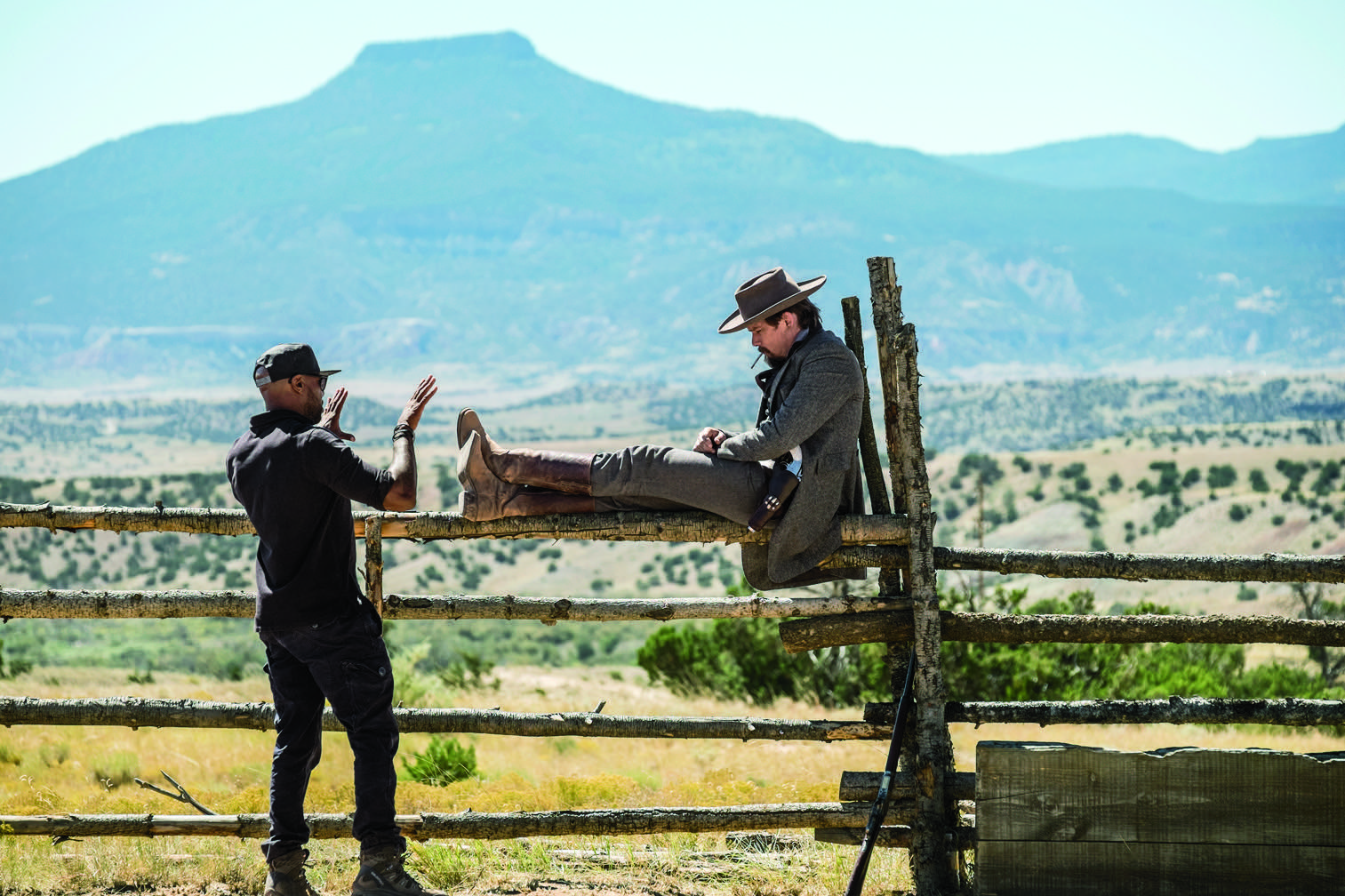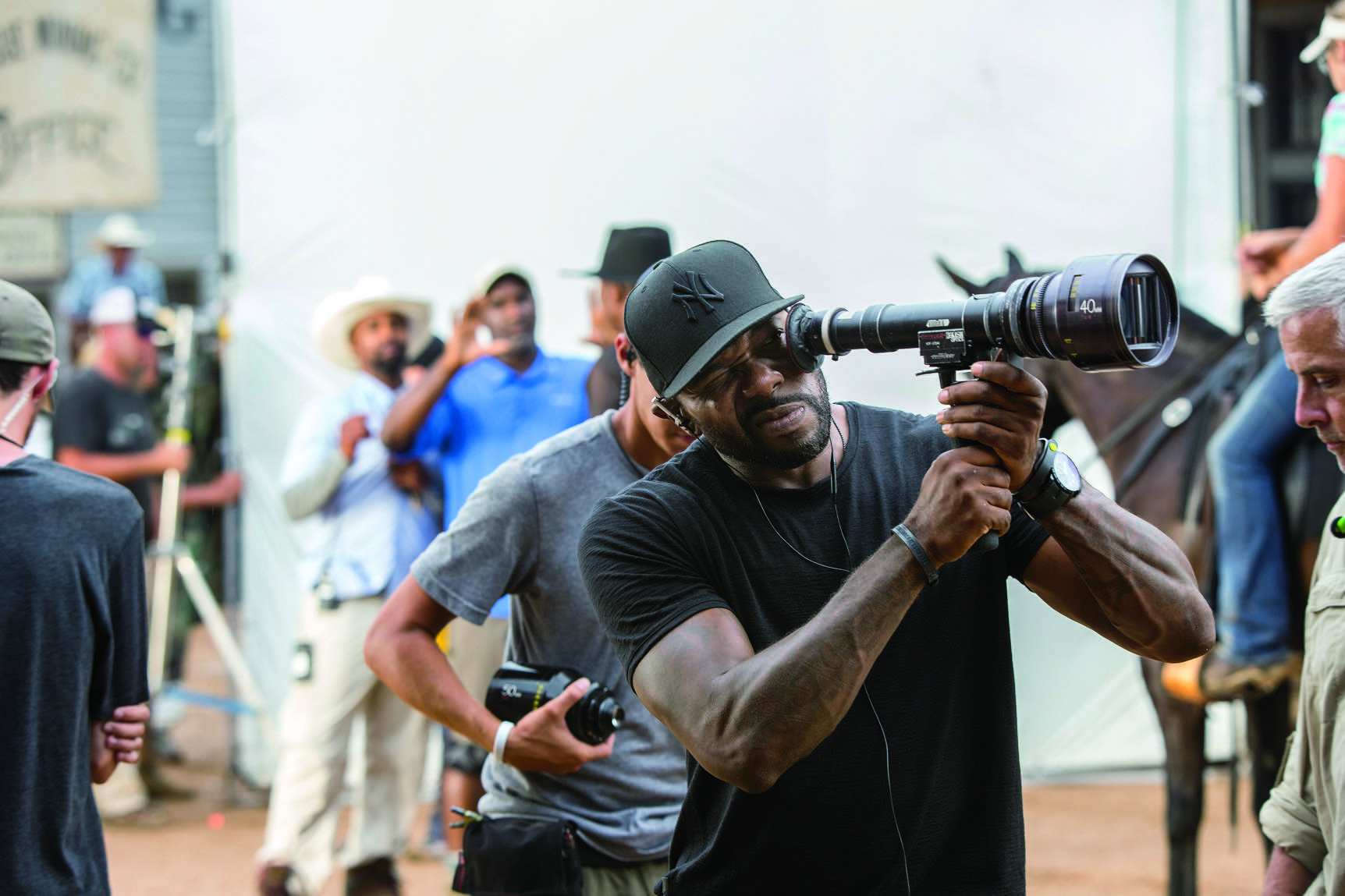Director Antoine Fuqua Talks ‘The Magnificent Seven’ and the Way of the Samurai
The ‘Training Day’ director opens up about taking on one of the greatest Westerns of all time.

Antoine Fuqua isn’t afraid of a little good old-fashioned close combat. Between Training Day, the now classic L.A. crime drama that earned Denzel Washington an Academy Award, and last year’s boxing thriller Southpaw with Jake Gyllenhaal, the veteran director has seen more blood, sweat, tears, gunshots and pyrotechnics than most paramedics.
After getting his start directing music videos for Coolio, Stevie Wonder and Prince in the 1990s, Fuqua has since worked with everyone from Chow Yun-Fat (The Replacement Killers) and Bruce Willis (Tears of the Sun) to Danny Glover (Shooter) and Morgan Freeman (Olympus Has Fallen). The filmmaker joined forces with Washington again for 2014’s underrated revenge fantasy The Equalizer.
And this month, they team up once more in Fuqua’s most high-wattage project yet, The Magnificent Seven, a 21st-century western with gold-rush pathos. The film tells the story of an oppressed frontier town fighting for its independence with the help of a fearless bounty hunter (Washing- ton) and six extraordinary gunmen—among them a lovable alcoholic (Chris Pratt), an axe-swinging dissident (Vincent D’Onofrio) and a pistol-dueling gambler with undiagnosed PTSD (Ethan Hawke).
MAXIM: The Magnificent Seven is a loose remake of the 1960 classic of the same name, which is an adaptation of Kurosawa’s Seven Samurai. What DNA do the films share?
ANTOINE FUQUA: Kurosawa is the sensei, the Shakespeare of filmmaking. When I read the Magnificent Seven script, I saw that the true essence, the core of his story, was still there. The word samurai means “to serve,” the idea that you should serve others before yourself. And sometimes people who can’t protect them- selves may need people who can step up and help. And sometimes that puts you at risk of losing your own life, which is the highest order of human being—to put someone else before you. It’s the most evolved version of ourselves. That’s partly why I wanted to shoot it.

What’s the difference between a cowboy and a samurai?
The reality of the samurai was vicious; they cut off heads and were incredible assassins. The ronin, the lost warriors, were trained to serve the emperor but ultimately had no master to serve. In that respect, it’s very similar to the West, which was lawless. But the cowboy version isn’t as much about serving a master, because as a soldier of fortune you spend your whole life staking your claim and selfishly taking whatever you want. You have free will, so you have to have your own ethics and code, and your choice to do the right thing becomes an even bigger decision.
In the film, you’ve got a black man, an Asian man, an American Indian, a Mexican man and a woman cast as cowboys, all in positions of power.
I grew up watching westerns and I wanted to be the cowboy, and they were always white. The Native Americans were portrayed as savages, women were all objects, Mexicans were all workers. But that was not the West. Anyone who’s done their homework knows that the West was a pretty rough-and-tumble place. People from all over the world were there—and when you were there, you had to be tough as nails. But I also wanted a film that reflected the world we live in today, more diverse and more interesting.
In terms of the diversity of leading roles, is this Hollywood being more inclusive?
I think Hollywood is changing, as much as it remains the same. I try to look at it as positively as possible. There’s a lot of talk about this— during the Academy Awards, there was a whole lot of interest, but then it goes away again. The best thing to do is to do it. It’s tough. You have to fight for it. You have to risk the possibility of getting red, of everyone going against you, and find a way to get it done. Like anything, seeing is believing. So try to make the best film you can and hopefully, in success, people will see it and want to do it again. Because that’s the only way people will respond—by succeeding. Jesse Owens had to go to Nazi Germany and run. He couldn’t just talk about it.

The Magnificent Seven has an incredible cast. What was it like to work with this ensemble?
The good thing about having Denzel, Chris Pratt, Ethan Hawke, Byung-hun Lee, Vincent D’Onofrio—they’re all great at what they do as actors, and they’re a bunch of guys who all like and care about each other. They spent a lot of time together, riding horses, training with guns. Relationships developed and evolved into what you see on the screen. Ethan Hawke and Vincent D’Onofrio are best friends; that’s why I wanted them together. And Denzel and Ethan have a great relationship. It was that same feeling with Training Day; they just picked up right where they left off—it was amazing to watch. And Chris Pratt is a dream. He’s the nicest guy in the world. He’s fun, he’s funny, he’s always positive and humble. Everything comes together because of who they are.
For me as a director, it was one of those really hard shoots because of the heat and all the stuff that goes into an outdoor venture. It’s 110 degrees, you’ve got horses, you’ve got battle scenes, big productions. But every day, I’d see these guys in their outfits, see them laughing or having a cigar, sitting together, and it would put me back to when I was a 12-year-old kid, when I first saw Steve McQueen and Yul Brynner and the rest—they were like, the coolest guys I ever saw. It was the most amazing experience I’ve had, being with this group of guys.
You continue to shoot documentaries, like the upcoming American Dream American Knightmare about Suge Knight, along with your more commercial feature work. Is that the “one for you, one for them” approach to choosing projects?
You have to! You have to feed your soul and spirit, but you also have to be a professional and remember the business that you’re in. Everything is not your passion project. You still have to feed yourself, or your family if you have one. It’s just the reality of life. You have to feature artists, find other ways to get the information out. A documentary is an informative vehicle, whereas in a movie, you may not be able to get that information out in a real way. But creatively, you get to exercise another part of your brain.
What makes the western your favorite genre?
They always reflect where we are in the world. The stories are clear, the characters are complicated. John Ford, the early westerns, are very wholesome. John Wayne and after the war, you get Preston Sturges. The Vietnam era, you get The Wild Bunch, then Sergio Leone with the antihero, Clint Eastwood. Seven reflects where we are in the world now. I hope the younger generation will want to see more of them. You don’t just have to see superhero movies. Ultimately, those movies are westerns—superheroes are good guys fighting bad guys in a landscape. In westerns, that divide couldn’t be any more clear, but the only superpower you have is that you’re a quicker shot than the other guy.
